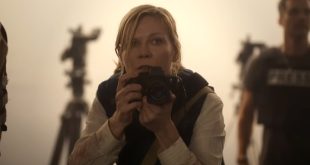Like a strange growth on their otherwise simple lives, finances are something all students are aware of but few truly understand. Navigating the complexities of budget-making and credit building can help younger students take that first step in accepting this new aspect of their lives and be all the better for it. Literacy is an all-time important factor for living, and financial literacy is no less of a valuable skill to make use of.
Credit Card Insider, an educational company that provides financial advice, recently brought to our attention that a study by the Everfi found that only 15 percent of the students they surveyed felt they had the education, information and resources to pay off future loans, with only 40 percent of those students reporting the creation of or use of a budget.
“I’ve never had a credit card, but I have experience with budgets,” VSU Student Michael Crews said when asked about his experience with financial literacy. “I’ve had to work them out before, getting a certain amount of money and being expected to keep track of where I spent it.”
With Credit Card Insider connecting with various colleges about these concerning findings, here are a few simple tips and ideas to help students find a place to start in their financial literacy and connect them to the resources VSU provides.
1. Keep Track of Purchases
While one may think building a budget is daunting, it’s easy to get started. The foundation for a good budget is getting good at keeping track of purchases.
Keeping track of every purchase allows you to be more aware of the money you have and don’t have, allowing you to truly consider where you could spend less.
Holding on to receipts is the best way to keep track of these purchases. Receipts can be the most important asset in tracking your day to day spending.
2. Find the Right Credit Card for You
Not every credit card is the right fit for a person, but it is important to find one that suits your financial needs and requirements.
Credit card companies often provide student credit cards specifically adjusted for a student’s lifestyle. With no annual fee, these credit cards are essentially free. Some credit cards even come with additional reward systems that give their users the chance to earn money with each purchase.
Finding the right credit card for you also requires you to responsibly use your credit card. Often new credit card holders become overwhelmed by the financial freedom they provided, making hasty purchases that come back to bite them later.
3. Build Credit
After acquiring a credit card, diligently sticking to a budget and paying your acquired bills are both very important when settling into a more independent lifestyle.
Building credit could be considered as building financial confidence. If you have a higher credit score (i.e. more financial confidence), banks and other businesses will have less issues with giving you loans and agreeing to transactions.
It is important to begin building this credit as early as possible and earning the trust of these individuals. Financial decisions will be harder down the road if you lack the credit to back up any claim of responsibility.
4. Educate Yourself
Learning about financial literacy is a crucial part of growing up and building confidence in dealing with business transactions and bank accounts. It’s very important in making the right decisions and following through with them.
Knowledge brings understanding and understanding brings confidence. VSU provides finance-oriented online seminars and educational lectures for these topics, which could be the difference between being able to deal with future loans or suffocating under the weight of them.
Finding others more experienced in financial literacy, such as your parents or other mentors in your life like professors, is also a good way of finding a good first step to take when exploring and becoming experienced with the different steps involved with becoming financially literate.
“I only just made a bank account at the end of last summer,” VSU Student Samantha Hall said when asked about her experience with banks. “I haven’t done much with it, but I guess it’s all trustworthy.”
Some of you may have already made financial mistakes. Maybe you’ve already found that the last purchase you made wasn’t one you could afford, and now you are dealing with debt. Jacob Lunduski at Credit Card Insider has some advice for you:
“It’s never too late,” Lunduski said. “If you made bad credit decisions in the past, there’s opportunities to pay them off and get back on the right track. It might take some time, some education and some willpower, but it is possible. No one deserves to be in a pool of debt for a part of their lifetime.”
Resources for those interested:
https://www.creditcardinsider.com/learn/
https://www.creditcardinsider.com/learn/reducing-debt/
Written by Payton Fletcher, Staff Writer. Image courtesy of Pixabay.
For more News, click here
 The Spectator The independent student newspaper of Valdosta State University
The Spectator The independent student newspaper of Valdosta State University








